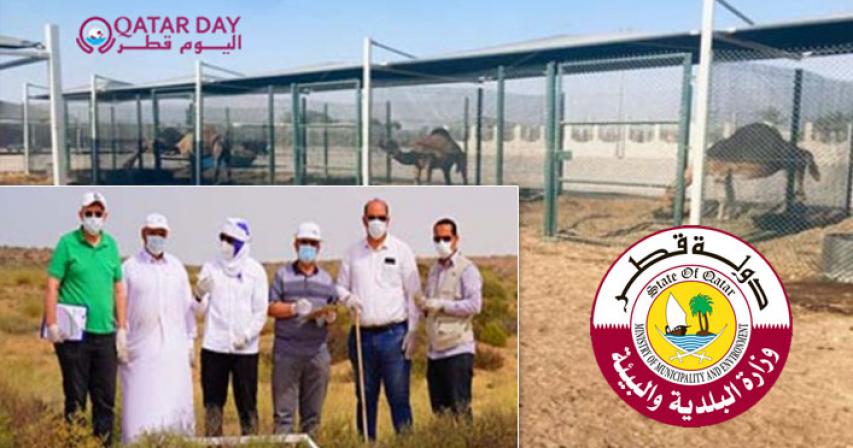Decision to Ban Camel Grazing on plantations: Positive and Negative Impacts
- 3 years ago

The Ministry of Municipality and Environment (MME), represented by the permanent team dedicated for studying the impacts of the decision to ban camel grazing, continues its field study for a second consecutive year.
With participation from a number of departments of the Ministry, the team has completed studying the impact of the decision in 10 manors in the State that are included in the study and supervised by the Environmental Protection, Reserves and Wildlife Department.
The team continues to study positive and negative impacts of the decision to ban camel grazing. It consists of specialists from all areas related to the study. This study also includes a part dedicated to creating a database of geographic information systems (GIS) for the study sites. The team will work to develop a spatial database for all studied manors.
It should be mentioned that the decision to ban grazing has contributed to regaining natural growth of some manors in Qatari lands. Preventing camels from grazing has reduced excessive pressure on manors, as camels have almost insatiable appetite for foliage and bark, which may lead to the death of trees. It is noted that wild trees, such as gum trees, vachellia flava (salam), Christ's thorn jujub and lyceum (bramble) have greatly regenerated during recent years after the decision to ban camel grazing, reducing its negative impact on foliage.
Source: Ministry of Municipality and Environment
Comments